✨Coco Mellors Shares Unmissable Insights, and Chelsea Bieker Reveals the Real Reason You're Struggling to Write✨
Plus, David Huebert's Q&A goes deep, the inside scoop on cover design with debut author Laura Leffler, and it's Bonus Episode time with bestsellers Jean Meltzer and Fiona Barton!
Happy Friday, friends of The Sh*t!
This week’s Friday edition is absolutely packed. Seriously. For real. Clear your schedules because you won’t want to miss a minute of the show or a line in the newsletter—it’s all solid gold this week, nothing but hits!
First up, this week’s podcast episode is one you’re absolutely going to want to listen to—possibly multiple times, likely with a notebook in hand, definitely in awe. Bianca’s interview with bestselling author Coco Mellors is absolutely packed with insights and advice (Editor’s note: Having just finished an ARC of her latest, Blue Sisters, I really do think you should pay attention—Coco knows what she’s talking about when it comes to writing. Boxing too, as it happens). 📒✍🏼
It’s also bonus episode time again, and this month Bianca chats with not one but TWO bestselling authors. Tune in to hear what Jean Meltzer (Magical Meet Cute) and Fiona Barton (Talking to Strangers) have to offer on topics ranging from the value of grounding stories in reality to the secret to writing good dialogue—and keep that notebook handy. 👂🏼
Next, we have an essay from Chelsea Bieker, yet another bestselling author (for her debut, Godshot), who uses her seemingly endless stores of empathy and emotional insight to full effect in both her fiction and her writing coaching—we’d be surprised if the lightbulb moment she shares with us this week didn’t lead to a lightbulb moment for you, too (Editor’s note: Make sure to give yourself time to really absorb this one. I’m not kidding when I say it could be not just writing life changing, but Life Changing, full stop.)💡‼️
We’re also very excited to be sharing debut author (and CeCe’s client) Laura Leffler’s cover reveal for Tell Them You Lied with you, along with her insider insights into the cover creation process. Keep reading for Laura’s answers to your burning questions on what a writer can and cannot expect to be involved in when it comes to determining what their book baby wears.📙📗📘❓
Last, but by no means least, we have a Q&A with award-winning author and MFA writing teacher, David Huebert. After reading it, we’re extremely jealous of his students—there’s enough meat in his answers to keep us thinking (about how we draft, how we write emotion, about how who we are informs what we write…and more) for days.
That’s all (all?!?) for now. Thanks for reading! ❤️
The Shit No One Tells You About Writing Team
P.S. Still not sure about upgrading to paid? Check out our Tuesday Teaser below to see what you’re missing!
This Week’s Podcast✨🎙️✨
This week on the podcast (listen to it here!) we’re throwing it back to an early backlist segment of 📕Books with Hooks🪝, after which, Bianca interviews bestselling author, Coco Mellors, about her latest novel, Blue Sisters. They discuss:
Writing on the line level while using metaphor and similes to describe things in ways that no one else has expressed them before;
The creation of Coco's extremely compelling prologue and how she approached writing it;
Writing characters who have agency and how their agency affects the plot;
Balancing showing vs telling, and how to make the telling feel like showing;
How writing can be an act of blind faith;
Writing multi POV novels;
The research process; and
Writing what you know.
“The prologue and the epilogue are both written in omniscient third and it's quite unusual for me to write in omniscient. Omniscient is the sort God perspective [whereas] I like to be right in the belly of a character and close third for me allows you to do that but… you can still use a lot of the language of a writer. [But it was] really fun writing omniscient third because I think I couldn't have done it in my first book. It requires a little authority [and] I kept being like, am I even allowed to say that?”
– Coco Mellors
You can find out more information about Coco on her website here. She's also on Instagram.
You can pre-order Blue Sisters on our Bookshop.org affiliate page here. Buying books through this link supports a local indie bookstore, as well as The Shit No One Tells You About Writing 📚❤️
August Bonus: Insights from Fiona Barton and Jean Meltzer
In this month’s bonus episode, Bianca interviews writer, journalist, and author Fiona Barton. They discuss:
The resounding success of Fiona's debut, The Widow, and its unique journey to publication;
The editing process with her agent;
The transition from journalism to writing fiction;
Why Fiona included a prologue in her latest novel, Talking to Strangers and what she wants readers to take from it; and
The social commentary in the novel.
After which, Bianca chats with Jean Meltzer, screenwriter and author of the rom-com, Magical Meet Cute. They discuss:
The importance of the meet-cute in a rom-com;
Surprising the reader in your opening pages;
Writing your characters' dialogue in a way that accurately reflects their background and who they are;
Jean's advice for including words that the reader might not understand;
Writing fun and interesting secondary characters without them stealing the limelight;
Building a sense of community without overwhelming the reader with too many characters;
Some of Jean's favourite romantic tropes;
Writing for yourself versus writing for a specific type of reader; and
Whether or not rom-coms need a HEA or a HFN.
You can find out more information about Fiona on her website here. She's also on X (formerly Twitter) and Facebook.
You can find out more information about Jean on her website here.
You can purchase Magical Meet Cute and Talking to Strangers on our Bookshop.org affiliate page here. 📚❤️
What is the story you’re telling yourself…about yourself?
By Chelsea Bieker
Chelsea Bieker is the author of the debut novel GODSHOT which was longlisted for The Center For Fiction’s First Novel Prize, named a Barnes and Noble Pick of the Month, and was a national indie bestseller. Her story collection, HEARTBROKE won the California Book Award and was a New York Times “Best California Book of 2022” and an NPR Best Book of the Year. Her writing has appeared in The Paris Review, People, Granta, The Cut, Wall Street Journal, and others. She is the recipient of a Rona Jaffe Writers’ Award, as well as residencies from MacDowell and Tin House. Raised in Hawai’i and California, she now lives in Portland, Oregon with her husband and two children.
Her newest novel, MADWOMAN is forthcoming from Little, Brown on September 3rd, 2024 and from Oneworld in the UK.
We writers are usually comprised of several selves—I have the capital ‘W’ Writer self (my preferred mode) who actually writes fiction; then there’s the Author self, who promotes and talks about that work to an audience; then there are the offshoots of those identities which have to do with teaching and, for the last five or so years in my case, one-on-one coaching. One of my beloved clients calls me her “book sha-woman.”
I love the coaching relationship for many reasons, but the main one is that in my sessions with other writers I’m able to witness common patterns. In general, people want to work with me to help hone their creative practice and feel supported in that. In the beginning, I structured our first sessions to identify their daily rhythms and what might be standing in the way of their writing. I instituted things like shared excel spreadsheets where they could log word counts, tips about using timers and habit stacking, scheduling writing time as if it’s an appointment, good old fashioned accountability check-ins. The list goes on—there are endless tips and tricks. Many of them really do work. Yet, armed with all these hacks, I still watched my clients turn up to our meetings not having done the work they hoped to do.
Then, years ago, in a session with a client, I had a huge, revelatory moment. I want to share it today because it has transformed the way I teach and write about writing, and I hope if you see yourself here, it might help you, too.
My client was a very high functioning person—a caretaker, a partner, had a full-time job, was very active in her community, etc. My client also harbored a lifelong dream of writing a novel. She had gone to school for writing, had formed community around writing, read like her life depended on it, and had a really great idea for a book. But when it came to actually writing…(sound the crickets.)
As she detailed her life to me, the little ins and outs, and all the reasons why making time for writing was impossible…and as I suggested ways they might make space—did she really needed to be the president for her kid’s archery team (maybe there was a less time consuming role that could still allow them to be present? Was it enough to watch practices and go to competitions?) Did she need to organize her monthly book club or could that baton be passed to others? Could she maybe take a break from researching her family history on 23 and Me and compiling it into a detailed spiral bound book…
It would be one thing if these activities seemed to be lighting this person up. If so, then great! But by nature of the fact that we were there to figure out how she might make room for her own fiction writing told me that something was out of balance and she knew it. She spoke of these tasks with the passion of a cardboard box.
But when I challenged this writer’s day to day, I felt her defensiveness turn on. I could see that this writer had really told herself a story about why she couldn’t write, and had worked really hard to corroborate that story (I’m just too busy!) by making herself in fact extremely, undeniably busy. Undeniably important. Undeniably needed.
The light bulb was this, though: she had done more work crafting the story of why she couldn’t write than the actual story she wanted to write: her novel.
I wondered, sitting with her, what might happen if the energy she had put into this story of her life was put into the novel she wanted to write instead? What would happen if I suggested that her idea of busyness was a self-created shield to prevent her from doing her heart’s work? Admittedly, I was a little nervous to float this idea. She was very convinced of her story after all.
“Do you really want to write this novel?” I asked her.
She looked dumbfounded. “Of course I do. That’s why I’m here!”
“Well, then we better figure out what’s really in the way,” I said, taking a leap, hoping I was right, that her kid’s archery had nothing to do with this.
She sort of half-heartedly launched into another story about how after the fall she would maybe have more space…if she could just get through the next few months… But I could see something new had begun to smolder inside her. I just nodded and smiled. She trailed off. “Alright.”
When it really came down to it, this writer for a great many years (over twenty) had filled her life with things she thought she needed to do, but not things she wanted to do. The deeper question was why she was doing this? Logically it made no sense. But we aren’t here to deal with logic, are we?
It has to do with something deeper that isn’t taught to us in our MFA classes and workshops on craft. It’s about fear, maybe. But what’s under that fear? We can’t just stop at fear, that wild merry go-round. Maybe it’s about the unrealistic expectations society places on women—patriarchy, anyone? Sure, sure, it’s always that. But what’s under that that we can identify and actually control?
I’d argue everything comes back to one thing: self-worth.
When I asked this writer directly, “do you think you are worthy of a writing practice?” tears sprung to her eyes. This told me we were onto something. That we had begun the harder work, the true work, which is to go below the surface, into the heart.
“Are you?”
She shrugged. She shrugged! Bingo, I thought. The shrug heard round the world, the moment when faced with this simple question and she could not say: “Yes.”
This, I thought, is why she’s not writing. It has nothing to do with her schedule.
I think sometimes we resist this idea because on one hand it seems too simple, but then on the other it seems much too complicated. Because to get to the core of why we’ve constructed certain stories about our lives, we have to look at the softer little version of us who at some point picked up stories from others about what we were capable of, what we were worth, and what we could (or not) offer the world.
I asked her what she thought would happen if she shifted her roles a little, gave herself some breathing room? Did she have to get that extra training certificate at work, really? What would happen if she delegated some things? What would happen if she quit the damn book club? Did she like the book club or was it a drag? She wiped her eyes. “It’s kind of a drag.” We burst out laughing.
But what would happen if she shifted some of these things she had told herself she HAD to do? She wasn’t sure yet, but she feared that if she wasn’t so busy all the time, and really devoted her time to her writing, she would find out she wasn’t very good, she’d find out her novel sucked, her family would be angry with her, her kids would feel abandoned, her partner would feel distant, her community would think she didn’t care about them…the stories were deep.
The deepest one that took a few more sessions to unlock: she worried she was just inherently not good enough and that success was for other people. And another biggie: If I say no to something, I will be unliked. I revised it: unloved.
As any writer knows, stories are the most powerful things of all. These aren’t only stories. Stories are the governing forces of our lives. If you don’t think the ones you are telling yourself about yourself matter, I’d ask you to reconsider. Why wouldn’t we interrogate the ones we tell ourselves about ourselves? Why wouldn’t we do it regularly? Her stories were a fiction she had created with detail and precision and clung to as if they would keep her alive. But in fact, they were killing her.
“The gift turned inward, unable to be given, becomes a heavy burden, even sometimes a kind of poison. It is as though the flow of life were backed up.”
— May Sarton
This writer’s gift was turned inward and warped. No matter what she did she always felt she wasn’t doing enough. This pattern would never end until she satiated that urge to write.
“I’d love to see you apply this same level of storytelling to your novel,” I said.
“Me too.”
So began the real work together. And only once she’d broken down this internalized narrative could she really start implementing the more practical tools and actually benefit from them. She had to practice saying no to things she didn’t really want to do. She had to first learn how to even register in her body that she didn’t want to do them. She had to negotiate her story about what a good mother and partner is. Maybe a good mother could be someone who writes for three hours on a Saturday morning, and shows up for the game with hugs and cheers, but isn’t running the damn squad.
You’re a writer, I kept telling her. Not a general manager of rec youth sports.
Right, right.
“Put it in the novel,” I’d say when I could tell she wasn’t totally convinced. “Give it your character to handle.”
I’d tell her to literally give her worries and problems to her narrator and watch them dance with it. It’s a great way to sidestep writer’s block and also see your own story morph and play out.
It’s a great way to have some distance from something and even build a little self-compassion along the way. On the page she could see that her need to be involved in every little thing was coming from a place of fear of not being enough and wanting to check boxes on outward measures of success, leaving her own internal boxes unchecked. She was starting to see the cost of this.
“What if nothing comes of my writing. Won’t people think, like, what was the point of all that?”
There was another story, the one about what people think of us. “None of our business,” I told her. She rolled her eyes. But I could see her taking in this new story. “I’d invite you to very much not give a F what other people think.”
We also had to work on her story about what a writing life looked like. She had told herself that to be a real writer that’s all you did. That you sacrificed everything and everyone. That you had to quit your day job.
“Please do not quit your day job,” I said. “Most of us still have to have day jobs, you know. Unless you’re Stephen King.” It’s true that nearly every single writer I know who publishes books, is balancing many other jobs and roles. It’s never one thing. So if you’re waiting for the moment you have no other responsibilities to write…listen, it’s hard to write from the grave.
The ice was melting. I could tell she was getting it.
“My mom always wanted to paint but she never did.”
I asked her what she thought about that. She said it was sad, that in a way she felt she could never truly know who her mom was because she never lived out that joyful impulse.
Joyful impulse! “Is writing joyful for you?”
“Yeah, I think so. If I can cut through all this other crap. I really do love it.”
I left our meetings feeling elated because it was all making more sense to me. This was why so many talented, capable writers seemed flummoxed as to why their lives weren’t matching up with their dreams. Why they were handing out their time like day old café muffins, cheap and easy, and not protecting it. It wasn’t that they hadn’t thought to protect the time! They had the right planners! They had taken seventeen classes on craft. It’s that they didn’t think they we’re worthy. The story became “I don’t have enough time” when really the story is “I’m not enough.”
It takes not only identifying our stories, but the work of reinforcing new ones. I’d suggest a practice that engages the subconscious, because this is where we quite literally rewire our neural pathways. This feels like a whole other post, and I’ve written about visualization at my substack, Make Up Your Life, if you want to check it out! But choose what works for you. The first step is getting very honest. Journal for a few minutes: What stories are you abiding that no longer serve you? What are you telling yourself about yourself? Where are these stories coming from?
I’ll leave you with a list of common ones I hear, and you can see if you can spot why they are limiting:
I’m a slow writer; I’ll never find mainstream success; Other people are lucky; I’m no good at plot; I’m no good at or only good at…(insert thing); I can only write in the morning; I can only write at night; I need to do a ton of research before I can start writing; If I just find a really good writing group I can write; I need more accountability; I don’t have time; I can only write under a full moon.
(Okay, you get it)
We can all find evidence of truth in our stories. We can look around for proof, and probably find it, that we are right. My client could list all the ways she was literally very busy. But go a step deeper. Are you a slow writer or are you scared? Did someone tell you this once and it became part of your identity? How can you say no to things in a way that serves your art while still staying engaged in your life in ways that are important to you? What will you do today that will bring you closer to your work versus further away? What stories are you telling yourself, about yourself? Let’s revise them and make sure they serve us now, today, for the writer you want to be, the writer you really are.
Happy writing,
Chelsea
Author Book Cover Reveal with Laura Leffler ✨📣
Laura Leffler is a writer and art historian who builds stories within the gorgeous and strange (and sometimes terrifying) art world. After receiving a master’s degree in post-war and contemporary art, she spent more than a decade working in commercial galleries, doing everything from art fair sales to condition reporting and logistics. Along the way, she witnessed more of that glittering world’s dark underbelly than she thought possible. Laura currently lives in Colorado with her family. Tell Them You Lied is her first novel.
TSNOTYAW: How much say did you have on the book’s cover?
Laura Leffler: More than I expected, actually. My editor sent me 4 possible covers and asked me to weigh in. I was blown away by all of them, but I knew right away which one I preferred. CeCe did a small survey at PS Literary, and I asked my writing partners their opinions, and we had a clear winner. There were some small changes to the art along the way, but the cover we went with is the one I loved most.
How soon into the process did you get to see the cover? Was it sooner or later than you expected?
I saw the first iterations in late January of this year, which was at that time one year from my publishing date. That date has since been moved to May 2025, so really it is 16 months pre-pub. This was a full year after we had agreed to terms, but only three months after we finalized and signed the contract. Publishing moves slowly until it doesn’t!
What were your first thoughts when you saw the cover?
It was a huge moment for me. And a long time in the making—I got serious about publishing a novel more than 10 years ago, when I wrote and went on sub with my first manuscript. It didn’t sell, but that only made me more determined. When I finally opened that file with the 4 covers—my title, my name—I got goosebumps. It was exhilarating and surreal to see an artist's interpretation of the thing I have been working on for so long. It made it feel real in a way that nothing (not the edits or the contract or even the advance) had before.
Is there an element of the cover that you didn’t like and, if so, how did you address it?
The original version of this cover had a different face, but for whatever legal reasons we could not get permission to use it. So when the designer recreated the art with a new image, I noticed a few small things that had changed in a way I didn’t love. For instance, in the first photo, the model’s lipstick was smudged, but in the new version it was perfect and clean. I asked if we could smudge the lipstick—and we did! It was that easy. It definitely felt like a collaboration.
Questions from CeCe’s Instagram poll:
Did the author have an idea board?
I did not have an idea board, but my editor did! She wrote a short description of the plot, plus character bios and photos, and images of setting. There is a word for this document that I can’t remember, haha! But this is what the designer received in order to make the art. Sadly I didn’t get a copy, but my editor did wave it in front of the camera when we were on a Zoom call. She used 90s-era Kate Moss for one of my MCs, which was exactly how I envisioned her. It made me so happy.
Can authors veto covers or does the publisher have the final say?
To be totally honest, I don’t know. I would not have vetoed any of the covers my publisher sent me, but I would have asked for some small changes on all of them. If I really hated something, I probably would have asked not to use it, and I think they would have respected that. I think it’s important to remember that the people who have final say on the cover have a lot more experience in what sells books than the writers do. Even though I have a visual art background, I was still happy to leave that part to the professionals!
What was in their contract about their involvement in the cover?
This is such a good question. I looked it up in my contract so that I could answer. Translated from legalese: The publisher agrees to “consult” the author on the cover and jacket copy, but all other details about how the book is packaged is determined by the publisher.
And…here is the cover reveal…drum roll please! 🥁🥁🥁
Isn’t it gorgeous?! 😍 Tell Them You Lied is available for preorder here. 🥳
Author Q&A with David Huebert
A writer and educator of British and Mennonite descent, David Huebert (he/him) David is the author of two books of short fiction, two poetry collections, and the 2024 novel, Oil People, described by Quill and Quire as “inventive,” “hallucinatory,” and “lushly poetic.” David Huebert’s work has won the CBC Short Story Prize and The Walrus Poetry Prize. His fiction debut, Peninsula Sinking, won the Jim Connors Dartmouth Book Award, was shortlisted for the Alistair MacLeod Short Fiction Prize, and was runner-up for the Danuta Gleed Literary Award. In 2018, David completed his PhD at Western University. He teaches fiction writing in the MFA Programme at The University of King’s College.
TSNOTYAW: Do you have a go-to mantra or pep talk for the days when writing feels hard?
David Huebert: Don't try to push through when it's not working. I think it's good to have numerous strategies for pulling yourself out of distraction and procrastination that aren't simply self-flagellation and hard knuckling. Give yourself permission to read or go for a short walk or look at parts of the manuscript that weren't necessarily on the agenda. Turn on the right music. Make yourself a hot drink. Try writing in a different spot of the house, or a new café or library.
I heard the writer Kai Thomas say (I'm paraphrasing): "when stuck, write it badly." That was definitely liberating. There are times you need to hunker down and write through the difficult scenes, the high-pressure narrative moments, the pages that intimidate you to write. To do so, it can help to remember that the first draft is only--in the words of the formidable Kathryn Kuitenbrouwer--compost. It's there to be turned over in the mixing and editing process, and that stage will come in time. The pile doesn't need to be your best work right now.
I find that flipping through my notebook or my notes document can be enormously helpful on tough days. When doing so, I'll often rustle up some tidbit that I'd forgotten about and that compels me to go into the document and, say, add a spicy line to a character's dialogue. Then I can get quickly immersed in that scene and I'm off, approaching "flow."
What one piece of advice (craft- or publishing industry-related) has always resonated with you?
"Tell all the truth but tell it slant." Emily Dickinson really said it all. My whole career as a writer and a teacher I've been cultivating a certain kind of slantedness as aesthetic vision. The idea is to state what's happening indirectly if at all possible. For me, another version of this advice came through the Canadian writer David Bezmozgis, with whom I had a chance to study long ago. He told writers to "say it without saying it," and I still find that idea useful. If I want to create a scene where one character is resentful of another, usually the worst thing to do is write "she felt resentful." I need to ask myself how I might tilt this impulse. That might mean going to body language or metaphor. It might mean expressing resentment in the cadence of the prose or the white space of the dialogue's subtext. As we read and practice, we learn more and more techniques for deking directness, cultivating complication, bending horizons. For me, that's the fundament of good prose.
How do you ensure you have enough time to write amidst so many obligations competing for your time?
There's never enough time! I've often heard the advice to "protect your time," which is crucial. As we all know, this also means protecting your time from yourself. As soon as you're finally free to do the good hard work of page-filling, the dishes on the counter begin to seem very urgent, as does that email you need to write to so-and-so about the grant thing. Browsers open. Brain spins. The river of concentration floods its banks, evaporates into frantic menacing clouds, is so hard to steer back on course.
I recently encountered the work of rest-expert Dr. Alex Pang, who points out that most successful creatives tend to operate along a similar pattern: they work for 3-4 hours in the morning, then they take a break. They usually go for a walk or do something else rhythmic to allow their ideas to percolate in this awesome constellation of brain regions called the default mode network. My own experience definitely bears this out. If you can get into some version of this pattern, the work of creation will come more easily because it's something your mind is also doing while at rest. However, just resting all the time doesn't work. You need to prime your brain, feed the compost pile with that large daily work session.
What's one writing "rule" or commonly followed piece of advice that you decidedly break?
Around the time I was starting to take writing seriously there was a lot of fear around "sentimentality." Sentimentality was anathema, always pitched as something not to do. This sentimentality-caution was likely rooted in the celebration of a Carver-esque minimalism (saying less is saying more), which was never really quite for me. There were also a bunch of tough guy Canadian male writers who were getting a lot of notice at this time, and I didn't want to write like that. I admired writers—like George Saunders and Sherman Alexie—who seemed to risk or approach sentimentality, and who certainly didn't write in quite the same pared down, reticent style. Their lines were tight and careful, but there was plenty of room for emotion and exuberance. I remember thinking "I'm a sentimental person, shouldn't that inform how I write?" I had learned a stylistic lesson, but I'd also learned what seems obvious but can be difficult to face: that I needed to see and confront and understand myself—I needed to honestly encounter myself to do my best work.
How important do you think it is for writers to be on social media?
I think doing social media badly is worse than not doing it at all. I recently heard it said that likes don't lead to book sales, which was freeing for me even if it's not true. Most of us know by now the perils and seductions of screens and socials. I suspect that social media encourages us to do things to impress others, project selves we feel we should project, and over-simplify things that are complicated and nuanced. For me, that's the polar opposite of good fiction writing, so I prefer to rest my mind and try to practice skills like concentration and careful thinking. You can't become a great writer by tweeting and #BookTok-ing (though you can of course position your work and get attention online). Writing and socials are wildly different skill sets. Some writers might be naturally telegenic and superb video editors. Awesome. But if that's not you, don't force it.
What do you wish you had known about writing before you published your debut?
Write linear drafts. Even if they're messy. Go from beginning to end and then do that again. This is quite commonly cited writing advice, for good reason. A caveat: I don't really write linear drafts from beginning to end (whenever I try the results are stiff and hollow). I write a patch here and a patch there, a sketch up ahead and a scene in behind, and then I set about slowly filling in the blank spaces in between. But this is just how I create my readable first draft. Then I can read it through in a linear way, editing for clarity and character and continuity. So whatever your way of getting to a first draft, get there and then comb through in a linear way.
Do you have any regrets about your journey so far? Do you wish you had done anything differently?
One of the very first times I ever published in a magazine, I wrote a horribly embarrassing bio. I still regret that, and I wish it wasn't in the public record. I now tell students to be very careful when trying to be funny or cute in bios. I think the best policy is to keep it bare and professional. You won't live to regret that.
Tuesday Teaser 😉
Continuing the theme Chelsea Bieker started with her essay this week, in next week’s newsletter exclusively for our paid members we’ve got not one but TWO essays that focus on helping you see yourself as a writer: Jenn Bane, co-author of Everyone Needs an Editor, shares practical tips to help you write that new story about your writerly self, and Carly Watters wants you to know that With the Act of Writing, You Are a Writer.
Believe in yourself as writer but not sure others do? Then don’t miss Tuesday’s Q&A with Bryan VanDyke, author of In Our Likeness, who talks about the reality of the difference between writing a great book and writing one that can sell.
We’ve also got a video from Tessa Bickers who shares about her publishing journey, and talks about reframing the things we experience as negatives and how it was those very “negatives” that actually helped her to where she is now: author of the soon-to-be-published The Book Swap.
And because we can’t get enough of Chelsea Bieker, she’s back next week with a video about an upcoming opportunity for our readers to get their burning writing questions answered.
Not yet a member? For just $8USD a month or $80USD a year you get:
an exclusive newsletter on Tuesdays featuring bonus author Q&As and other exclusive content from industry experts
weekly access to Carly Watters and CeCe Lyra’s written notes on queries from the podcast’s Books With Hooks feature
monthly bonus podcast episodes, AND
regular Ask Me Anythings / Q&As with Carly, CeCe, and Bianca Marais.
If that doesn’t kickstart your writing journey, we don’t know what will!
Learn All About Fantasy with Bianca and Friends!🧙🏼🪄🧙🏼♂️
Join Bianca Marais on the 28th of September from 9am-5pm ET as she hosts a one-day virtual retreat specifically aimed at fantasy authors!
Whether you write YA Fantasy, Romantasy, Adult Fantasy, Epic Fantasy, Dystopian Fantasy, or any other variation of the genre, you won’t want to miss out on this amazing day of learning dedicated especially to you and those writing in your genre.
The retreat will be taped, and the recording and materials will be sent out to all registered delegates the next day. Each session that includes a Q and A will allow you to ask the speakers all your burning questions.
A closed Facebook group will be created so that delegates can interact with one another before and after the retreat as a way of building and maintaining community.
The registration fee is US $ 149.00.
For more information, and to book your spot, click below:
Be Part of Carly’s Masterclass 😍📝
Carly’s class includes 10+ hours of writing and publishing video lessons you have lifetime access to, monthly Q&A sessions, and fresh content every quarter.
Did we mention there’s an app, too? You can keep learning on the go. Don’t miss a minute of Carly’s top career advice for aspiring, emerging and published writers. Get the writing career you’ve always dreamed of.
That’s all for this week’s news! If you enjoyed it, why not share the love? 🥰
Tune in again next week for more invaluable wisdom from our wonderful hosts! Until then, happy writing! 😍
❤️ The Shit No One Tells You About Writing Team
Our work takes place on land now known as Toronto and Ottawa and we acknowledge that these are the traditional territories of the Mississaugas of the Credit, the Anishnabeg, the Chippewa, the Haudenosaunee, and the Wendat Peoples as well as the unceded, unsurrendered territory of the Anishinaabe Algonquin Nation. Toronto is covered under Treaty 13 and the Williams Treaties. We respect and affirm the inherent and Treaty Rights of all Indigenous Peoples across this land and acknowledge the historical oppression of lands, cultures, languages, and the original Peoples in what we now know as Canada. We invite you to learn more about the land you inhabit, the history of that land, and how to actively be part of a better future going forward together at Native Land or Whose Land.
Carly Watters and CeCe Lyra are literary agents at P.S. Literary Agency, but their work in this newsletter is not affiliated with the agency, and the views expressed by Carly and CeCe in this newsletter are solely that of themselves and do not necessarily reflect the views, opinions, policies, or position of P.S. Literary Agency.




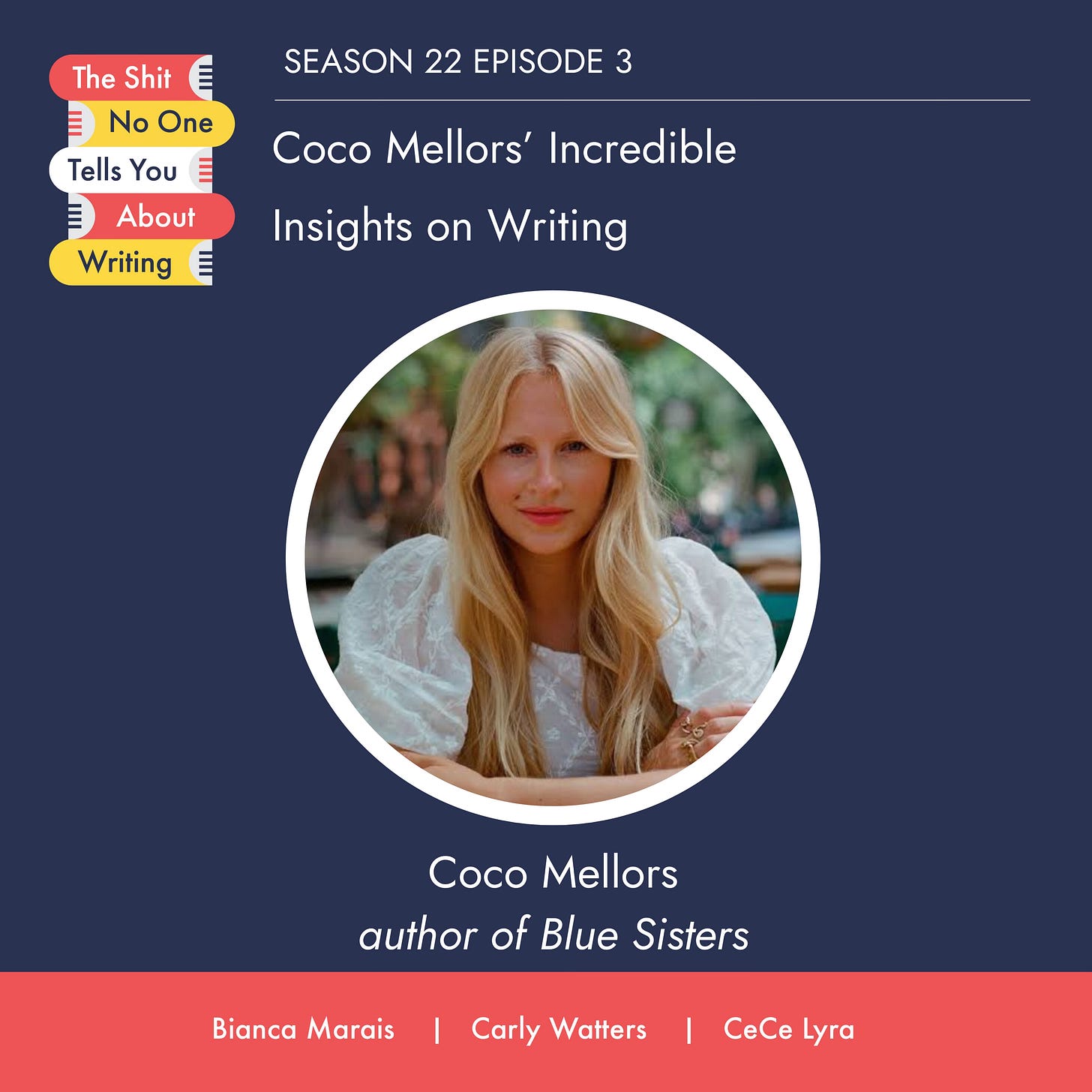
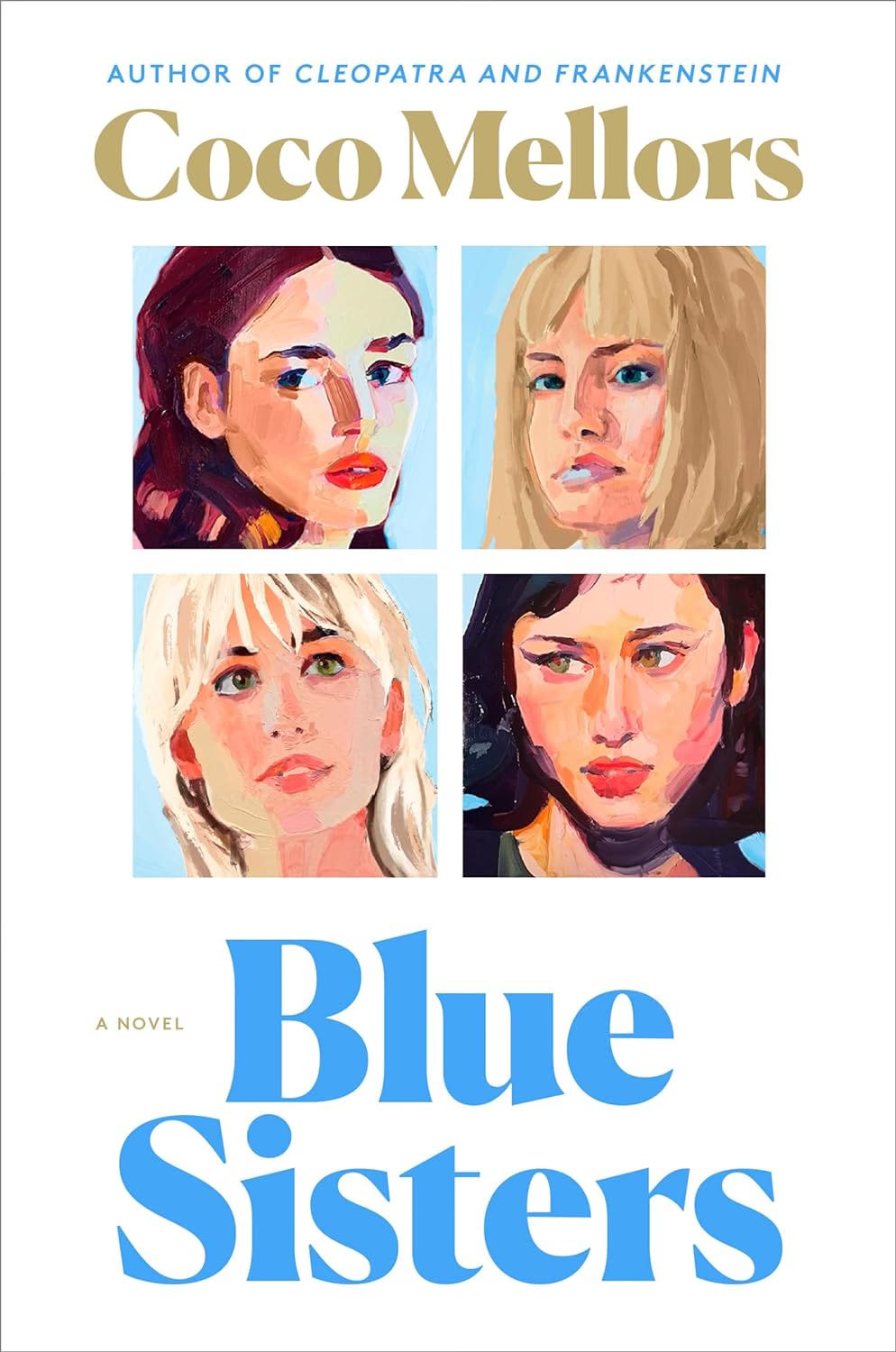
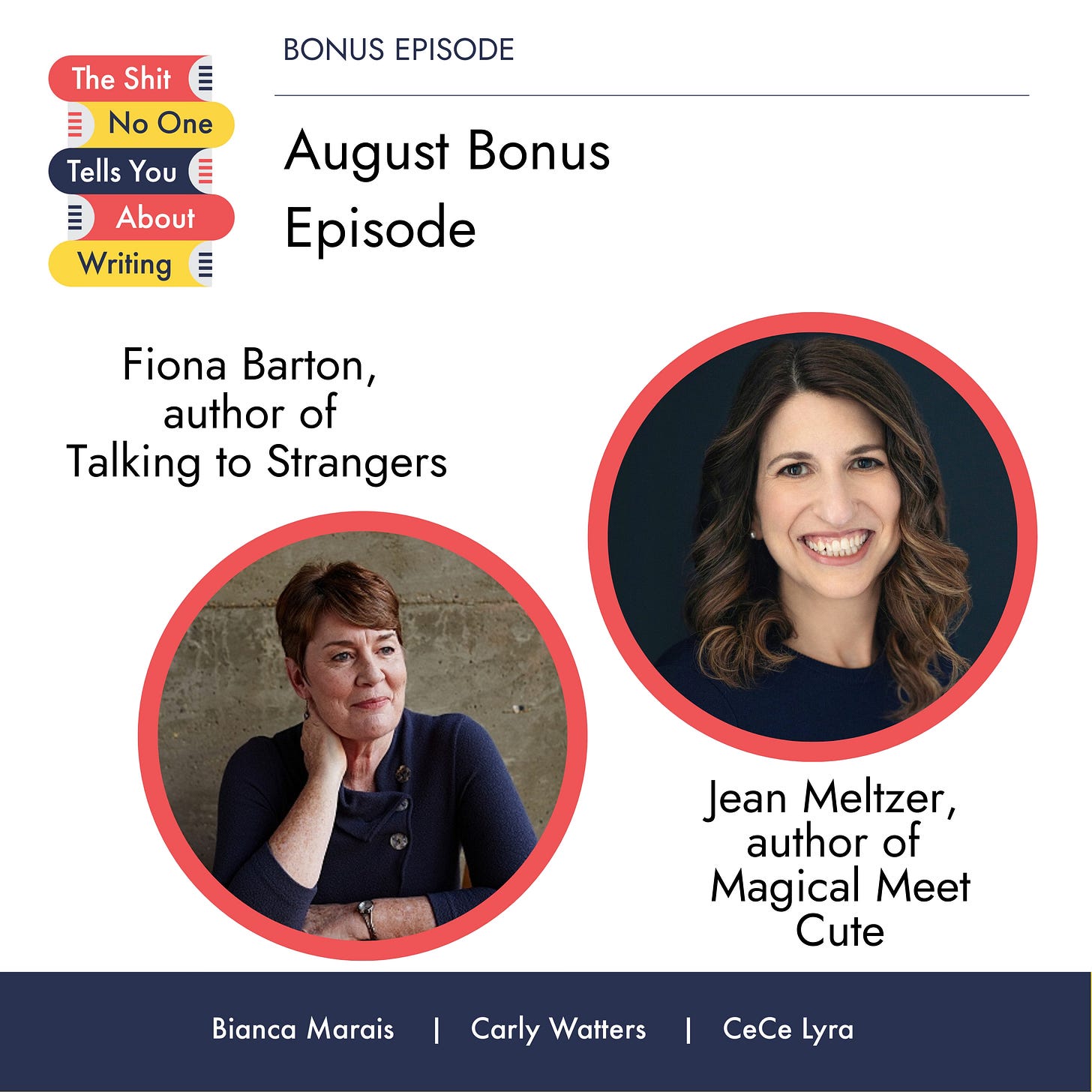

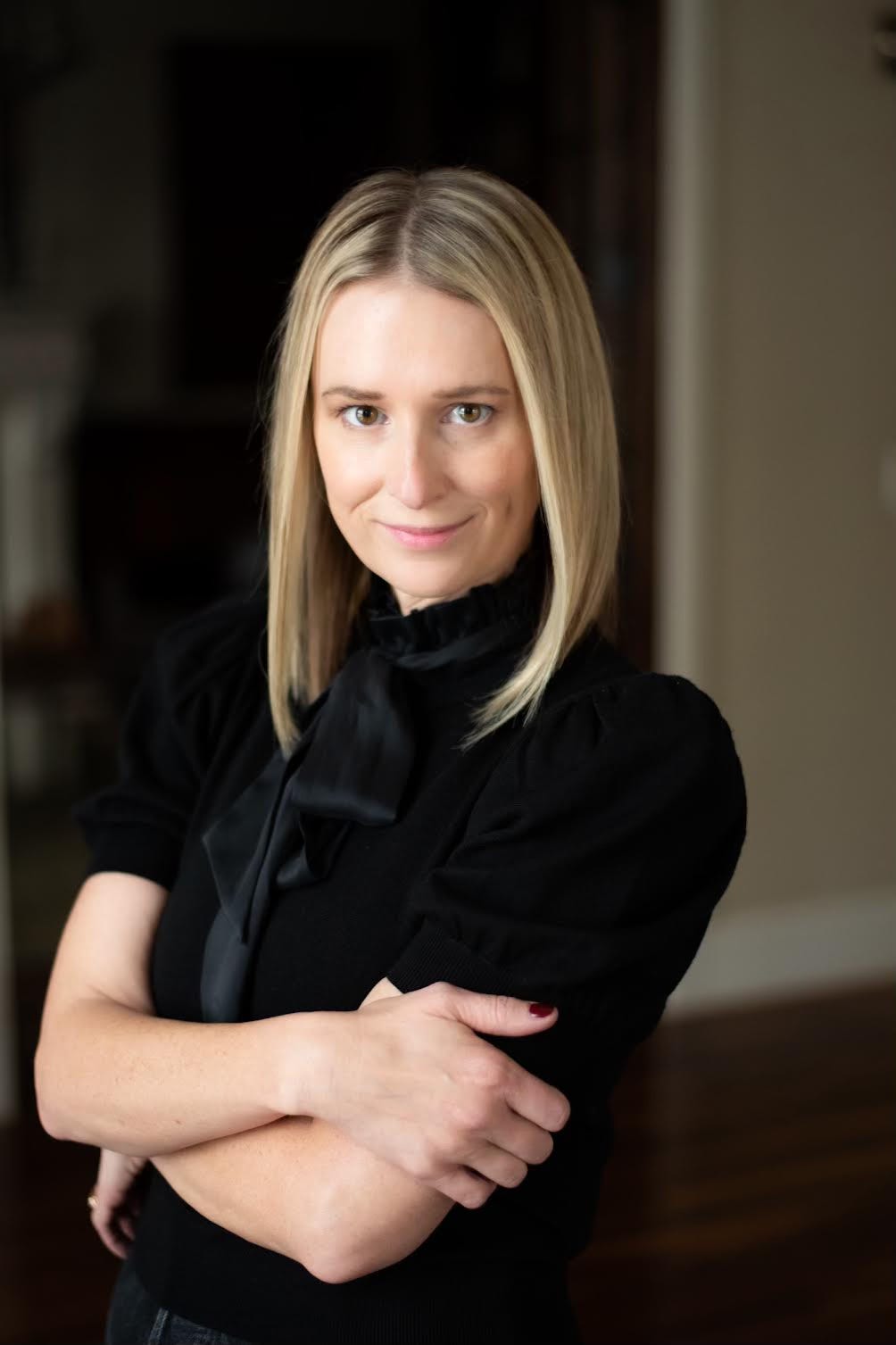
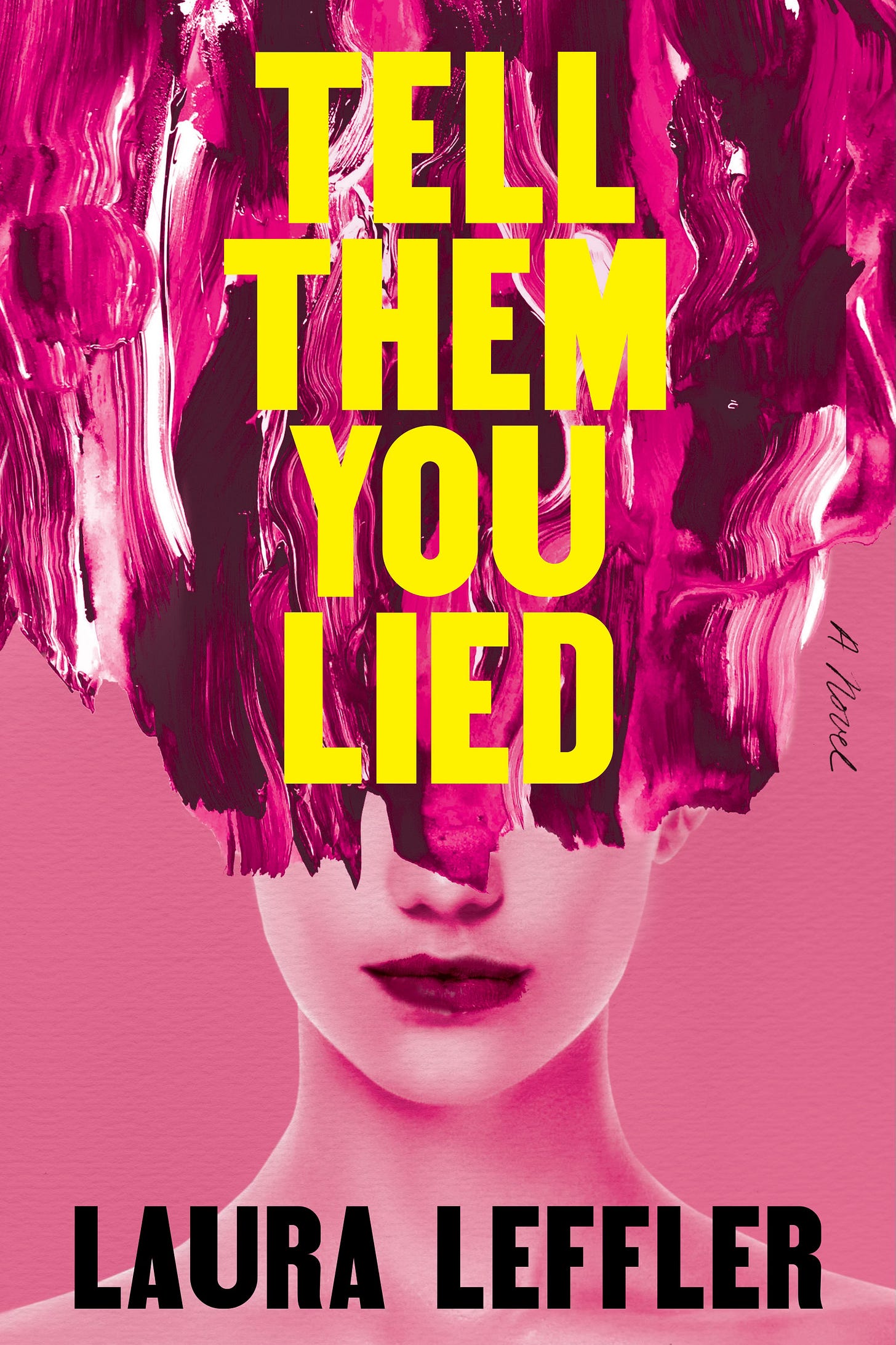

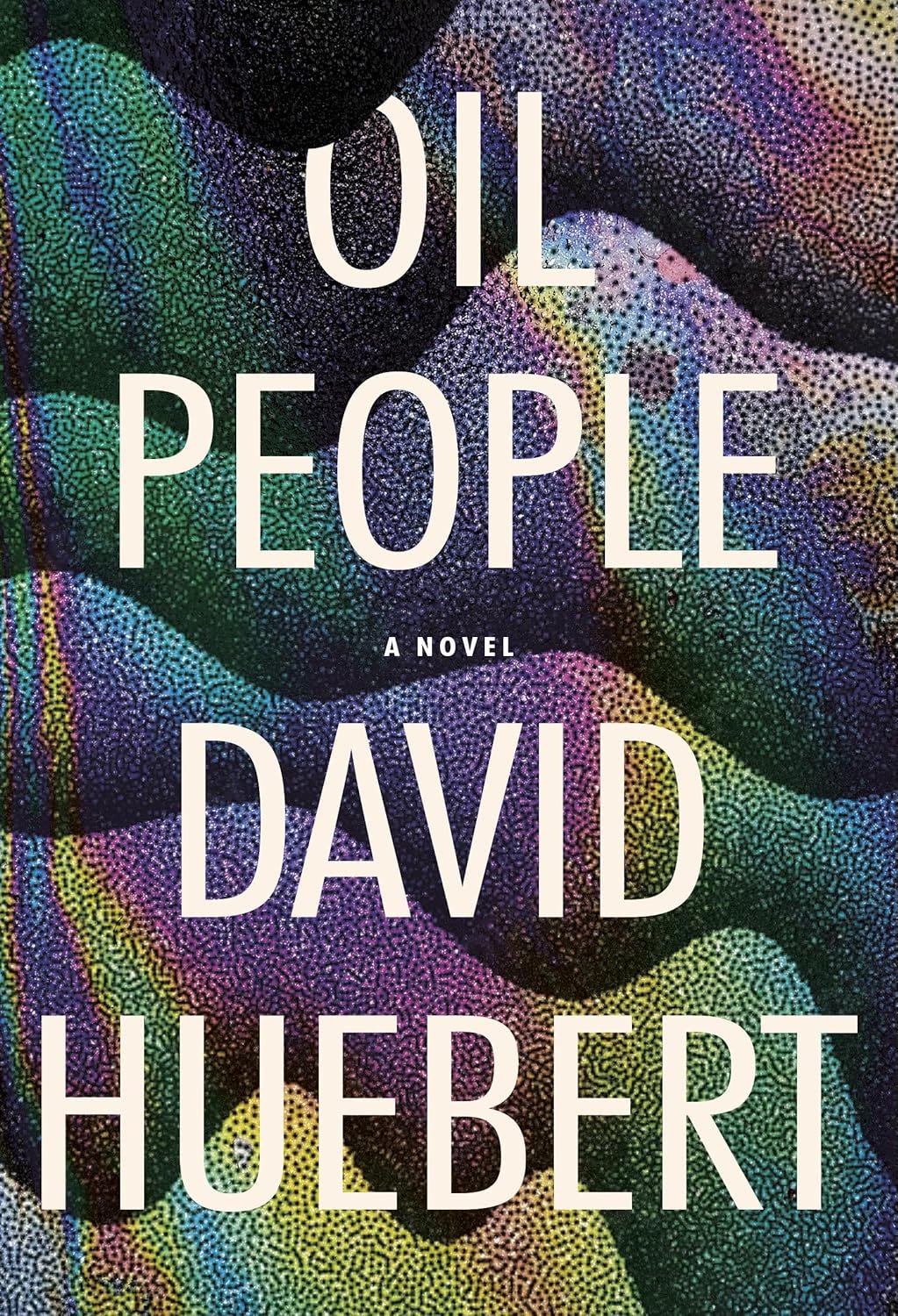


"We writers are usually comprised of several selves—I have the capital ‘W’ Writer self (my preferred mode) who actually writes fiction; then there’s the Author self, who promotes and talks about that work to an audience; then there are the offshoots of those identities." Love it!
I'm getting better at being a Writer. Being an Author is a whole lot harder and less enjoyable for me. And along the way, I've ended up created numerous alternate versions of me.
This was a jammed pack newsletter! I am excited to read Chelsea’s new book and loved her coaching around the writing blocks of self worth, which I’m going to retrofit memoir :) The role of the unconscious is super interesting to me — how to stay with the urgency of wanting to write your story (and the pleasures of it) and not be daunted by the fears of putting it out there. The reasons, like the best stories, are almost never on the surface. Thank you!